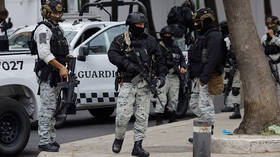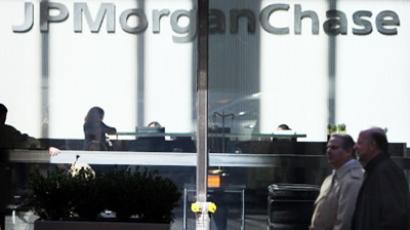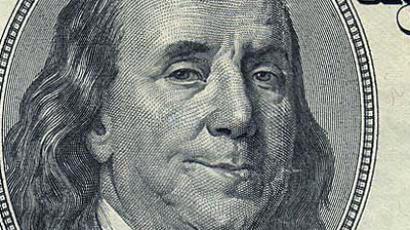JP Morgan Chase thumped by tricky financial gambling

The largest US bank JP Morgan Chase has taken a huge hit in casino-banking, losing $2 billion on its credit default swaps.
The huge loss came as a result of an overly complicated and risky scheme to hedge the bank’s deals, tied to quotations of corporate shares. “The portfolio has proved to be riskier, more volatile and less effective as an economic hedge than we thought,” CEO Jamie Dimon told reporters. “There were many errors, sloppiness and bad judgment.”The policy worked out by the bank’s Chief Investment Office rested on expectations of continuous economic recovery in the country. The scheme however started to produce losses already in April, when market tendencies changed.The Wall Street Journal and Bloomberg News reported then that other investors were reacting to massive positions taken by a London trader identified as Bruno Michel Iksil, nicknamed the London Whale, who worked in the Chief Investment Office – JP Morgan Chase's risk management arm. At the time, CEO Dimon dismissed the concerns as “a complete tempest in a teapot.”The staggering loss should attract the attention of regulatory bodies and raise the question of possible risk in hedging operations. According to some estimates, the gross notional exposure of the largest US banks, including Bank of America, JP Morgan Chase, Goldman Sachs, Citigroup and Morgan Stanley, stands at about $291 trillion. This figure includes the value of derivatives written in New York City, which can go much higher should the financial instruments written in London be taken into account. Given the extremely volatile nature of the market, the effects of any market disorder could be disastrous.The markets’ reaction was quick and sharp. Barclays, which has a large investment banking arm, was the biggest loser in London trading Friday morning, down 2.9 percent at 202.7 pence in midmorning trading. Royal Bank of Scotland fell 2.2 percent, while Lloyds Banking Group was down 1.8 percent and HSBC dipped 1.3 percent. Ian Gordon, analyst at Investec Securities, said the share movement may be based on a fear that JP Morgan Chase's difficulty will lead to tougher regulations on banking. “Based on the limited information available, it's attributed to egregious error within JP Morgan, so there is no reason to read across that specific loss to any other bank,” Gordon said. Jordan Lambert, a trader at Spreadex in London, said the market reaction was understandable. “When such shocks occur, it is wise to err on the side of caution and consider whether it is a possible tip of the iceberg scenario, especially when one contemplates the interconnectedness of the banking system,” he said.














